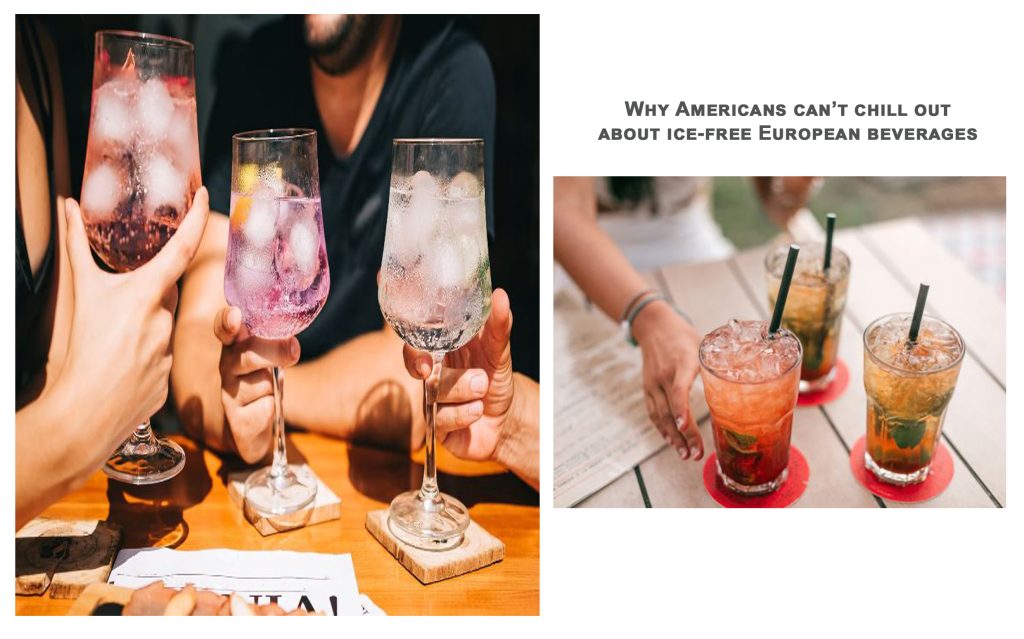
The Clash Between Europe and the US
When American tourist Sarah Johnson visited a Parisian restaurant, she didn’t expect her simple request for a glass of iced water to spark a heated cultural debate. “The waiter looked at me as if I’d asked for something strange,” Sarah recalls. “In the U.S., iced water is standard, but here, it felt like I’d made some kind of mistake.”
Her experience is far from unique—it highlights one of the most surprising cultural differences between the two continents: the practice of serving iced water in restaurants. While Americans consider it a basic right, many Europeans view it as unnecessary and even unhealthy.
The Historical Roots of the Divide
European Tradition: Health Comes First
Europe’s reluctance to serve iced water stems from several historical factors:
- Ancient Medical Beliefs: Since the Middle Ages, European doctors believed cold drinks could harm digestion and cause stomach cramps.
- Old Infrastructure: Many European homes and restaurants date back centuries, when refrigeration wasn’t widely available.
- Slow Food Culture: Europeans generally prefer room-temperature beverages to fully appreciate the flavors of their meals.
The American Approach: Convenience Above All
Meanwhile, the U.S. embraced iced water due to:
- The widespread adoption of home refrigerators in the 20th century
- Fast-food culture, which promotes extremely cold drinks
- Restaurant marketing strategies that made iced beverages part of the customer experience
Conflicting Medical Opinions
Warnings From European Experts
Many doctors in countries like Italy and France support the traditional view that iced water may cause:
- Slower digestion
- Esophageal spasms
- Throat shock in hot weather
The American Scientific Perspective
On the other hand, U.S. studies suggest that:
- Cold water helps cool the body after exercise
- There’s no strong evidence it harms digestion
- It may slightly increase calorie burning
Implications for the Hospitality Industry
Restaurant Service Standards
This debate reveals deeper differences in service philosophies:
- European restaurants prioritize tradition and serving food as it’s “meant to be”
- American restaurants focus on customer comfort and customization
Tourist Reactions
Surveys show that:
- 68% of Americans feel frustrated when iced water isn’t automatically served
- 42% of Europeans see the insistence on iced water as a sign of “lack of sophistication”
Travel Tips for Both Cultures
- In Europe:
- Explicitly ask for “iced water” if you prefer it
- Be prepared to pay extra in some restaurants
- Try room-temperature water as part of the cultural experience
- In the U.S.:
- No need to specify—iced water is the default
- You can request water without ice if preferred
The Future: Toward Mutual Understanding
With increasing cultural exchange, some high-end European restaurants now offer iced water as an option, while a growing movement in the U.S. promotes the benefits of room-temperature water. This debate remains a living example of how even the simplest daily habits can reflect deep cultural identities.
Ultimately, whether you prefer your water iced or at room temperature, being aware of these differences makes travel experiences richer and more meaningful

[…] In a surprising turn of events for fans worldwide, British actress Emma Watson has been banned from driving following a traffic violation in London. The news, which sparked widespread discussion on social media, shed light on the details of the incident and the penalties imposed on the beloved star.Emma Watson Banned from Driving […]
levitra special instructions vardenafil 20mg levitra schmelztabletten wirkung